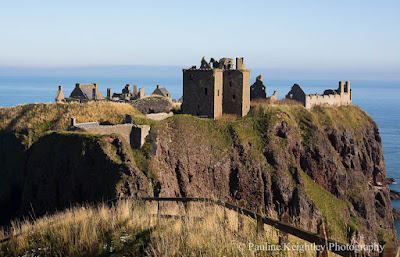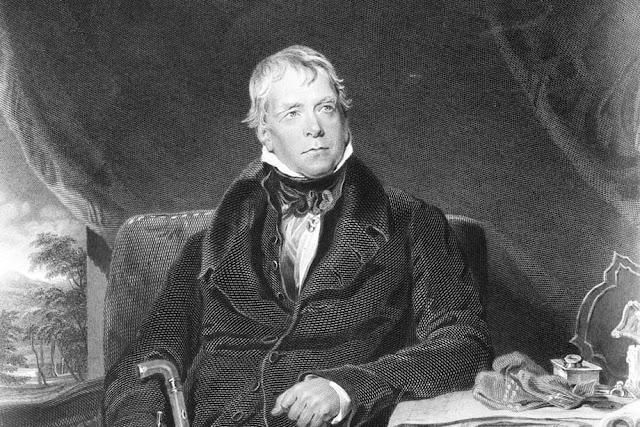Tom Nairn why Scotland missed the European national revival 1800s
Scotland’s greatest political theorist of the modern times.
Tom Nairn’s brilliant Break Up of Britain (1977), is one of the best reads on how and why the archaic institutions of the British state and its pre-democracy are failing us. How Scotland lost its way and its literary voice over the 1800s and of the fake tartanry of Walters Scott’s novels, of a Scotland that’s lost and can never return - “the heart regrets, but never the head.” Of the destructive and false nature of the Labour party.
He writes on why Scottish nationalism is different to the rest of Europe.
“All I’m arguing for is nations, minus the dratted “ism”; democratic natural, independent, diverse, ordinary, even boring rather than the museum pieces, or dictatorship or hustlers like Blair of Berlusconi.” Tom Nairn, Free worlds End, opendemocracy, Dec 4th 2004.
Nairn writes of the misfit of the British state to the modern world and not from the express of romantic tartanry, which the author excoriates – and the centrality of the nation in political change.
That the Scottish Enlightenment was very much a Tory project. While Scotland prospered during the 1800s with manufacturing, its literary voice became bereft. He sees Walter Scott’s work of a mythical Scotland and Scots heroes, as very much glorifying a past that was gone and to be forgotten. Scotland became north Britain. While Scott’s romantic and mythical novels were highly successful across the world.
**Those Myths of Blood and spirit, such as Jacobites, Rob Roy, Robert the Bruce.Nationalism, Nairn argues is always both good and bad. ’ And originated from that derived in – the impossibility of escape from the uneven development of capitalism.’ Nationalism is not a question of simple identity, but rather of something more – a catalyst. Nearly all modern nations have a myth – a key to their nationalism and regeneration. But not England… :with an astonishing resistance of a fossilised and incompetent political order.
“England’s peculiar form of nationalism hopelessly stultifying inheritance of the state.…The main character of English history since 1688 “of which English ideology most proud is, her conditional and parliamentary revolution. “
“the mobilising myth of nationalism is an idea of the people … an emotive notion anchored in popular experience of love” – the revolution, war of liberation.”
He writes, “What counts is later mass beliefs. These are amplified into an inheritance, broadcast in ballads, written into documentary history text-books, novelized, sermonised and institutionalized into street-names and statues. From the process there derives an always latent conviction of popular will and capacity. That the people could always do it again.”
**By contrast in Europe 1800s, nationalism took hold with the demise of empires, and the rise of nation states. “Only one country “stepped over before the Europe of 1800s – Scotland politics and culture was decisively and permanently altered by the great awaking of nationalist consciousness – Scotland or north Britain …due to the uneven development of capitalism. “
“After the black the unspeakable 17th century was 1688 which marked the real dawn of Scotland, after the dark bloodshed years of religious conflicts across Europe. – William Robertson, in his book History of Scotland. When the Scottish bourgeoisie exploited the results of the English revolution. Scotland progressed from fortified castles and witch burning, to Edinburgh new town and Adam Smith in only a generation:”
Highlander Adam Fergusson, saw this contrast around him. “The Highlands were under-developed and didn’t have pre-requisite for nationalist existence. The Highland life was destroyed after 1745. The Scottish Enlightenment ended early 1800s. The Scottish literary tradition paused 1825 – 1860. Instead there was the Industrial Scotland of Glasgow-Edinburgh- Dundee – engineering, shipbuilding and iron stone.
Scotland reverted to being a province in the 1800s Victorian times, while prosperous and imperial. Why – because of the absence of political nationalism and a literary voice. The Scottish bourgeoisies pre-possessed the country’s distinctive and proto-national features – they believed in a universal and enlightened civilization .Therefore Scotland remained stuck betwixt and between - too much a nation to be a mere province, yet it could not develop into a nation-state on the basis either via nationalism.
Nationalism, Nairn argues is always both good and bad. ’ And originated from that derived in – the impossibility of escape from the uneven development of capitalism.’There is a duty to progressive England to positively urge Scotland onto independence in Europe.
England-Britain where, perhaps because Westminster no longer has a genuine interior life that links to public self-belief, almost everything that is political is unauthentic.
”national-democratic character of the need our self-government to ensure meaning on self-belief.”
Nairns approach is both international and rooted in Scotland and he wrote for the new left review London. He explores the nature of nationalism. In UK more confused by the overlay of British-ness, a nationalism without a nation. His case of Scottish independence advocated becoming LIKE other countries. The self-abasement of the union.
A Future??? A British isles or federation, confederation or modernised multi-national states.’
**DONATE to the conference to celebrate the work of Tom Nairn, organised by Peter McColl (Scottish Greens) , Janice Maxwell (co-editor), Pat Kane, Joyce Macmillan, Anthony Barnett (English democracy activist)
His most famous BOOK Tom Nairn’s brilliant The Break up of Britain 1977, is well worth reading and one of the best reads on the archaic nature of the British states’ pre-democracy. https://www.thenational.scot/politics/23475146.impact-tom-nairn-great-let-slip-quietly-away/
The most influential book on British politics to be published in the last half century,” writes Anthony Burnett








.jpg)







